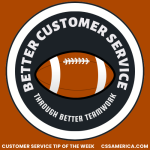
When you’re 8 miles from the Canadian border in North Dakota, there’s not much reason to learn how to swim. As a child, you’re more concerned with shooting marbles, building a mini-igloo, and learning how to avoid frost bite.
That’s where and how I grew up, but as I grew older, and moved South, I wished I had learned to be a better swimmer. I wished that I had learned to breathe while doing freestyle. I wished I had learned to float instead of sink to the bottom like a rock.
The reason I wished I’d learned all these things at an early age is that – as I grew older – the fears of the water began to rise, and now the learning process was more about overcoming my mental outlook and fears than learning to refine swimming strokes. I wasn’t (and still today, am not) too old to learn, but it would have been SO MUCH EASIER to have learned swimming at an early age, and it would be so much more enjoyable to be at the pool today.
Maybe this is part of the reason I’m not a proponent of an approach with new hires in a business that is exclusively using on-the-job training. Most organizations have a mission, a vision, and core values. Many have customer service standards. Others have defined best practices for particular processes. Some organizations know what attributes of employees make some great and others more run-of-the-mill.
To assume that new employees will understand the mission, vision, values and standards naturally, to assume they’ll naturally conduct the work in the best manner possible, to assume that they’ll develop the attributes of the highest performing employees naturally is to set them up – and the company – for failure.
An organization with the intention of succeeding and thriving in a culture where employees drive high performance must be intentional about training their new staff on the “whys” of what they do, the expectations of their attitudes and mindsets, and the behaviors of those who excel.
Why? Because it is worlds easier to teach this to a new hire than to retrain and “rewire” a long-term employee.
Be intentional about training new hires to be stars for your company.
Signup for FREE Tips! Contact Us More Resources for You Visit Our Home Page























